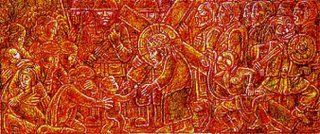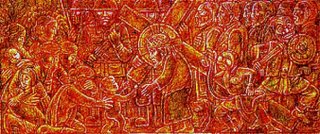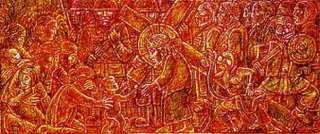Theology in One (or Two) Paragraphs
The most important guiding principle to my work as a chaplain is service. I do have significant doctrinal commitments, which are not negotiable: Anglican priesthood is predicated on commitments to Nicene Orthodoxy, the Chalcedonian formula, the undisputed ecumenical councils, and the Bible as containing all things necessary to salvation. My role is not to convince anybody of this, but rather to serve. Many whom I serve may disagree with, be ignorant of, or simply have other religious commitments. These people will have spiritual needs, and my service will be comprised of meeting these needs as they arise, not despite of my doctrinal commitments, but because of them. These core beliefs make my service possible, as they are the teachings that have led me into the world, not away from it. One of the main themes of orthodox Christian belief is that God enters the world as a human person, takes on all of what the human person is (except sin), and re-presents the human person into full participation in the life of the Holy Trinity. God's ministry to us is that of service, the service of the incarnation, crucifixion, resurrection, and ascension of Christ. Without these doctrines, my own service of entry into the suffering world of the hospital makes little sense. Only if the Holy Spirit is at work, making Christ present to and in myself and others, in the midst of the death, suffering, and life of the hospital, can I even begin to contemplate entering this campus at all.
In the incarnation we are presented with the reality that God can be present through a human person. Jesus of Nazareth, Jesus the Christ, is the primary mediator of God in the world. But by Christ's re-ordering of the relationship between God and the human person, the human person is also re-ordered through their freedom from sin. By repentance, conversion, and purification a person comes close to God, and can mediate the presence of God within human relationships. This presence is exercised through both word and action, but for our purposes here, presence is exercised primarily through the spoken word. Christ is the Logos, the word made flesh, and the spoken word is one of the primary modalities of the presence of God in our post-ascension/pre-parousia world. These words that bring human persons into the heavenly presence of God are shared, read, and prayed in many places, but for us, they are shared in the hospital room. Through conversation and prayer a person can be healed and made well, through the re-ordering of the relationship between God and person effected through the mediating presence of a person speaking of Godly and heavenly things.
















